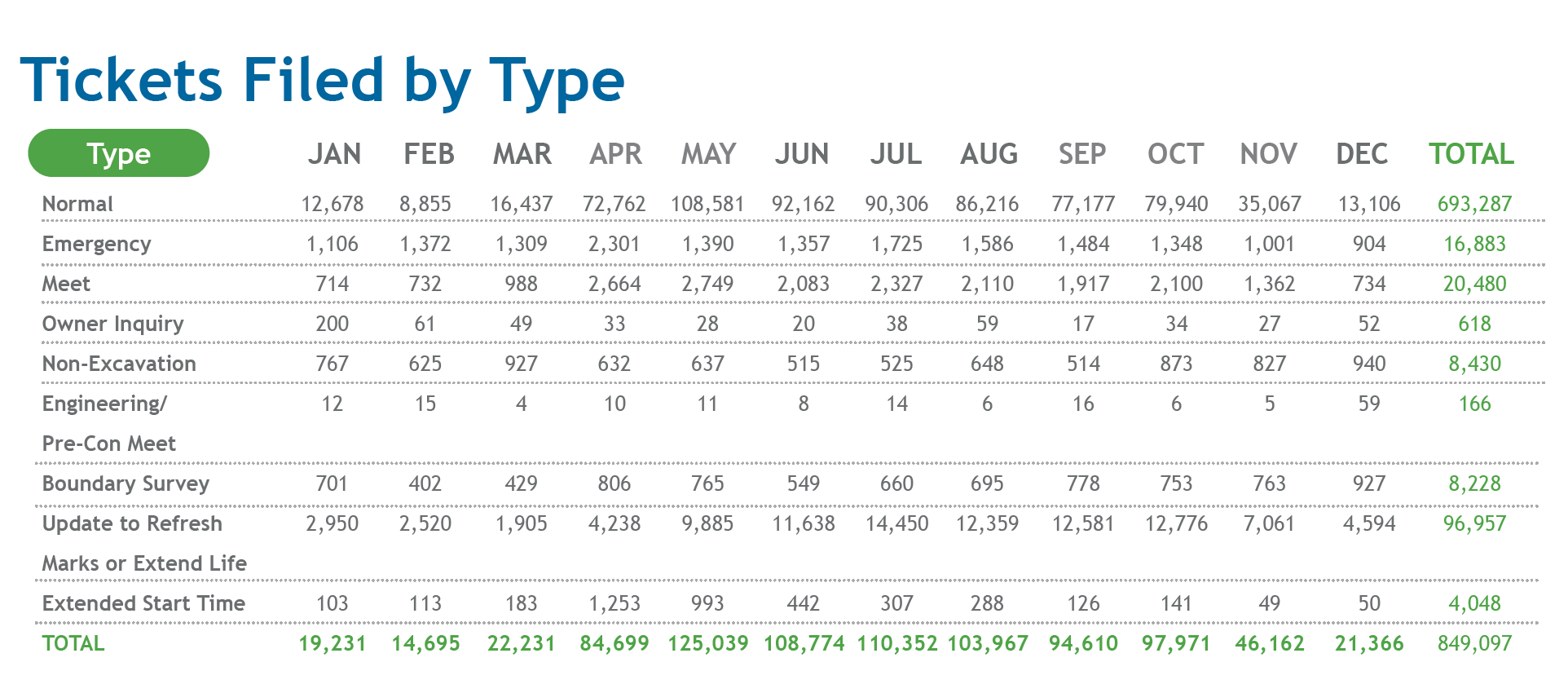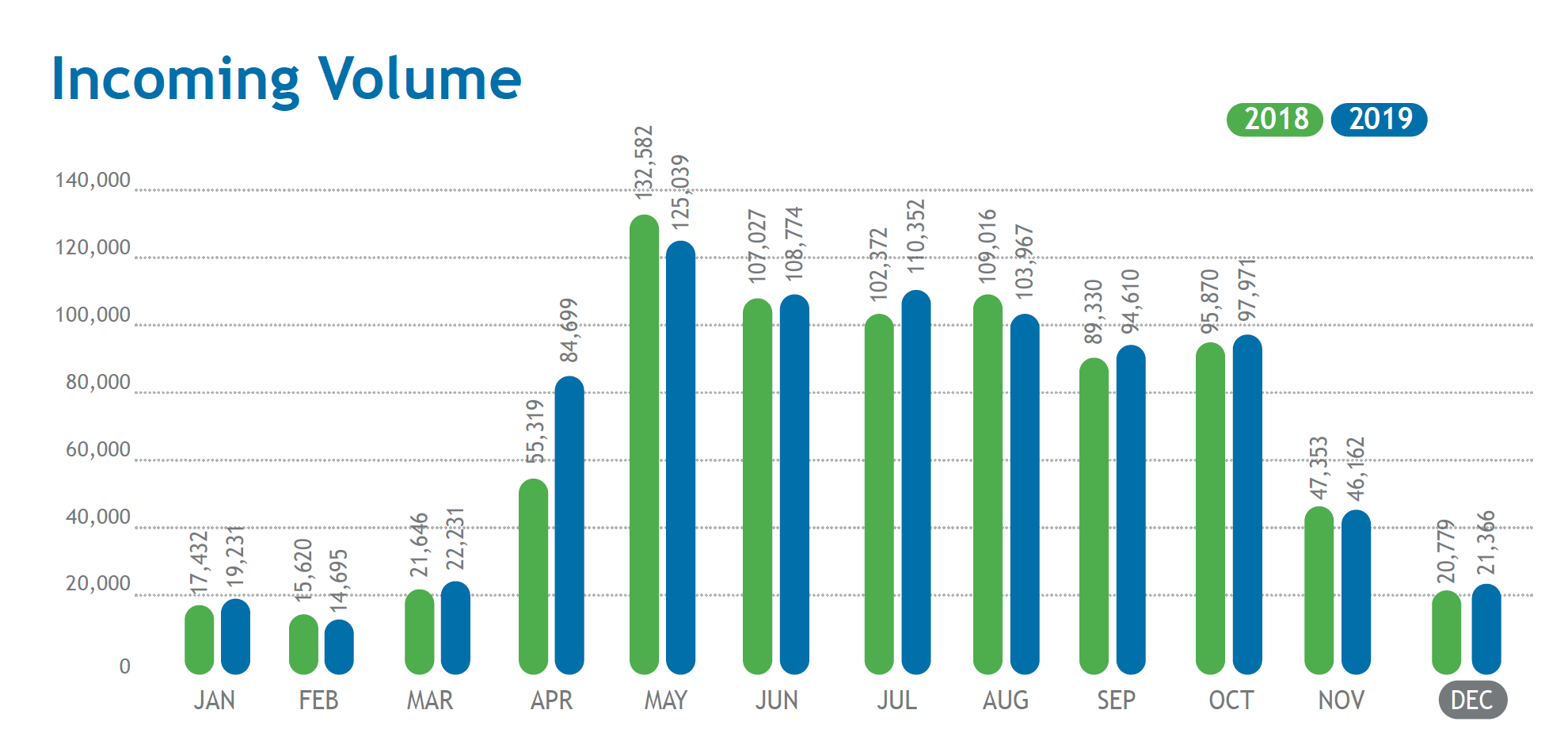Gopher State One Call annually compiles its ticket submission and transmission volumes. Information like this is shared to help make a correlation between one call center ticket and/or transmission volume to damages or events that have occurred. Receiving ticket and transmission volumes from one call centers allows stakeholders to review more accurate projections and to determine the cause and possible solutions for damages to subsurface installations.1
We can glean a lot of interesting information from reading our one call notification center data, including identifying digging patterns. This chart from our 2019 review shows the amount of tickets we received throughout the year and lists each ticket type.

GSOC processed a total of 849,097 tickets in 2019. April marks the traditional start of the digging season (which is why April is National Safe Digging Month). The spring season is when GSOC sees an increase in ticket volume over January-March. As temperatures begin to drop, so does ticket volume in the months of November-December.
Inclement weather is also a factor in ticket volume. If Minnesota is hit with a snowstorm in April, then the data would reflect a higher ticket volume in May to make up for it.

A lot of digging happens on the weekends, so the most common days for higher ticket volumes are Monday and Tuesday. On average, this is because excavators would need to have placed their GSOC notifications by 5:00 PM on Wednesday to ensure a Saturday start.
Want more ticket volume information? Keep an eye out for the next DIRT report on the CGA website.
1http://call811.com/best-practices/best-practices-guide/328-one-call-center-data
